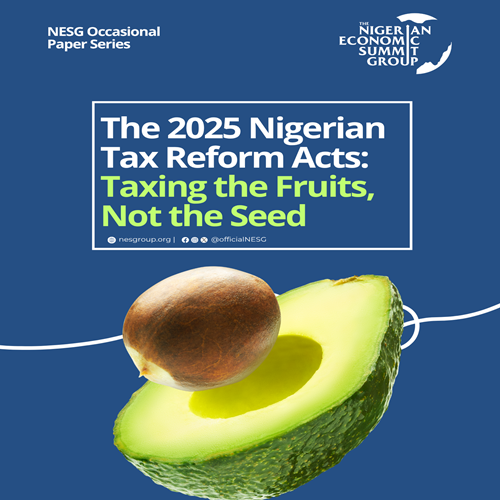Posted Mon, Jun 30, 2025 9:23 PM
Download Report (6 downloads)
Nigeria has long grappled with persistent fiscal challenges: low tax revenues, a large informal sector, inefficient tax collection systems, and an overdependence on volatile oil income. The country’s complex tax system and low tax-to-GDP ratio keep it behind many of its African peers, restricting critical investments in infrastructure, health, and education.
To address these enduring issues, President Bola Ahmed Tinubu inaugurated the Presidential Committee on Fiscal Policy and Tax Reforms in July 2023. Chaired by Mr. Taiwo Oyedele, the committee was tasked with achieving the primary objective of enhancing revenue collection efficiency, ensuring transparent reporting, and promoting the effective utilisation of tax and other revenues to boost citizens’ tax morale, foster a healthy tax culture, and drive voluntary compliance.
The 2025 tax reforms mark a major step forward in Nigeria’s fiscal evolution. For individuals, especially low-income earners, the reforms offer relief through exemptions on wages, essential goods, and job-loss compensation. For small businesses, reduced tax levies, including income and withholding taxes, are expected to ease compliance burdens and stimulate growth. Larger businesses will benefit from input tax credits, though they must meet stricter compliance requirements. Meanwhile, the restructured VAT regime, digitalisation of tax processes, and stronger oversight mechanisms aim to boost efficiency and public trust. Ultimately, these reforms promise a more equitable, efficient, and transparent tax system—provided implementation is timely, inclusive, and firmly rooted in transparency and accountability.
